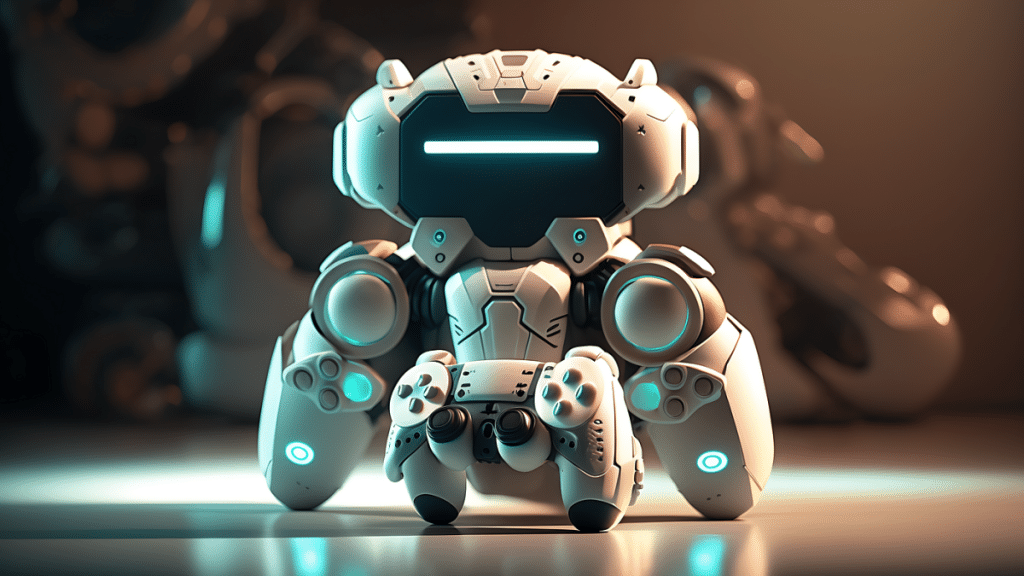In recent years, artificial intelligence (AI) has revolutionized the world of gaming, pushing the boundaries of user experience through personalization, performance optimization, and new forms of interaction. From designing more advanced hardware to the evolution of gamification, AI has transformed how games, platforms, and devices interact with users.
AI in Video Games: Smarter NPCs and Dynamic Gameplay
One of the most noticeable impacts of AI in the gaming industry is the enhancement of non-player character (NPC) intelligence. Through machine learning, NPCs can adapt to player strategies, offering a more immersive and unpredictable experience. Titles like The Last of Us Part II and Cyberpunk 2077 have showcased how AI can create more responsive enemies and teammates with lifelike behaviors.
Beyond improving realism, AI is also shaping gameplay through procedural generation systems. Games like No Man’s Sky use AI algorithms to create infinite and unique worlds, ensuring new experiences in every session.
Hardware and Performance: AI-Driven Optimization
Artificial intelligence extends beyond software, playing a central role in gaming hardware development. The latest gaming consoles and PCs utilize AI to enhance graphic performance and optimize real-time rendering.
DLSS and AI Upscaling: Top-Tier Graphics
Technologies like NVIDIA’s DLSS (Deep Learning Super Sampling) and AMD’s FSR (FidelityFX Super Resolution) use neural networks to enhance graphic quality while reducing the load on GPUs. This allows for sharper, more detailed images without sacrificing frame rate, crucial for competitive gaming.
AI and Advanced Cooling
Thermal management in gaming devices also benefits from AI. The latest GPU and console cooling systems, like those in the PlayStation 5, dynamically adapt to workload, adjusting fans based on game intensity to ensure optimal performance without overheating.
AI in Cloud Gaming and Multiplayer
Cloud gaming has made gaming accessible on any device, and AI is accelerating this shift. Services like NVIDIA GeForce Now, Xbox Cloud Gaming, and PlayStation Now use AI to reduce latency and improve real-time streaming, allowing users to play triple-A titles on less powerful devices.
In multiplayer settings, AI is crucial for intelligent matchmaking, analyzing player skills and placing them in balanced matches. This system is particularly prevalent in games like Call of Duty: Warzone and League of Legends, where accurate matchmaking can make the difference between a fun experience and a frustrating one.
Gamification and AI: A New Way to Play
AI has also revolutionized the concept of gamification, influencing sectors like education and professional training. Educational platforms like Duolingo and Kahoot! employ machine learning algorithms to personalize the user experience, adjusting lesson difficulty based on individual performance.
In video games, gamification manifests through advanced progression systems, dynamic missions, and personalized rewards. AI analyzes player behavior to suggest tailored objectives and challenges, keeping motivation and engagement high.
AI and Responsible Gaming in Online Casinos
The online casino sector benefits from AI, especially in promoting responsible gaming. Platforms use algorithms to analyze player behaviors and identify potential signs of problematic gaming. Systems for self-exclusion and spending limits are automatically suggested to help users maintain a balanced experience.
In Switzerland, strict regulations require rigorous standards for responsible gaming, and AI has become an essential tool for ensuring compliance and player safety. Platforms integrate cutting-edge AI technologies to monitor player activity efficiently and intervene when necessary. One popular game that benefits from this technology is Plinko, which uses AI to offer a safe and engaging gaming experience.
Conclusion
Artificial intelligence is redefining the world of gaming on multiple levels: from creating more realistic worlds to optimizing hardware performance, to advancing cloud gaming and gamification. As technology continues to advance, we can expect increasingly immersive and personalized experiences, where AI is not just a support but a key player in the gaming industry.
